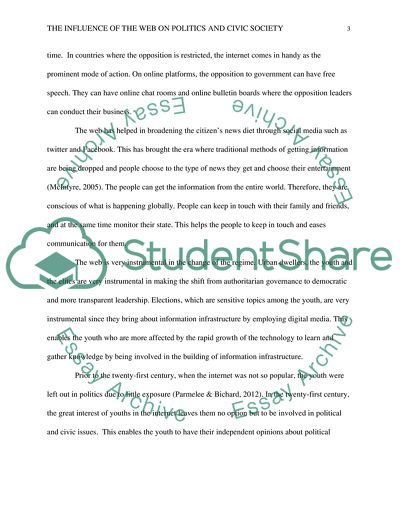Cite this document
(The Influence of The Web on Politics and Civic Society Literature review Example | Topics and Well Written Essays - 1500 words, n.d.)
The Influence of The Web on Politics and Civic Society Literature review Example | Topics and Well Written Essays - 1500 words. https://studentshare.org/information-technology/1845459-the-influence-of-the-web-on-politics-and-civic-society
The Influence of The Web on Politics and Civic Society Literature review Example | Topics and Well Written Essays - 1500 words. https://studentshare.org/information-technology/1845459-the-influence-of-the-web-on-politics-and-civic-society
(The Influence of The Web on Politics and Civic Society Literature Review Example | Topics and Well Written Essays - 1500 Words)
The Influence of The Web on Politics and Civic Society Literature Review Example | Topics and Well Written Essays - 1500 Words. https://studentshare.org/information-technology/1845459-the-influence-of-the-web-on-politics-and-civic-society.
The Influence of The Web on Politics and Civic Society Literature Review Example | Topics and Well Written Essays - 1500 Words. https://studentshare.org/information-technology/1845459-the-influence-of-the-web-on-politics-and-civic-society.
“The Influence of The Web on Politics and Civic Society Literature Review Example | Topics and Well Written Essays - 1500 Words”. https://studentshare.org/information-technology/1845459-the-influence-of-the-web-on-politics-and-civic-society.


